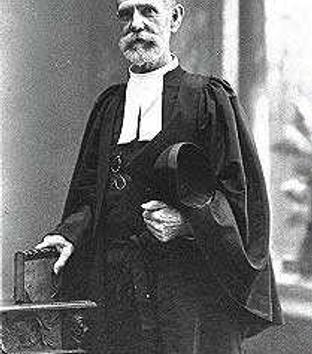
Born in South Shields in northern England, Cook determined to become a missionary upon reading an account of the death of David Livingstone. In 1881 he accepted appointment by the English Presbyterian Mission to take charge of the Chinese Presbyterian Church in Singapore, which had languished after the death of its founder, Benjamin Keasberry.
He arrived in Singapore in 1882 after a year in China during which he studied the Swatow dialect. After reforming the existing congregation, he initiated the establishment of new congregations to serve Chinese Christians outside the city and those of dialects other than Swatow. He also obtained land grants from the sultan of Johor through James Meldrum, son-in-law of Keasberry and prominent company manager in Johor. This led to the formation of the first Chinese Presbyterian churches in peninsular Malaysia.
In addition to his administrative and pastoral duties, Cook oversaw for many years a monthly missionary meeting which brought together all of the Protestant church workers in Singapore and fostered extensive cooperative ministries. He was an influential leader of the temperance and anti-opium movements in Singapore and was an outspoken critic of the brothel trade in Chinese women. This, and his interest in history, was reflected in his books and numerous articles for the Christian press in Singapore.
Attribution
This story is reproduced, with permission, from Gerald H. Anderson, ed., Biographical Dictionary of Christian Missions.
Sources
- J.A.B. Cook, Sunny Singapore, (1907).
- Bobby Sng, In His Good Time (1993).


